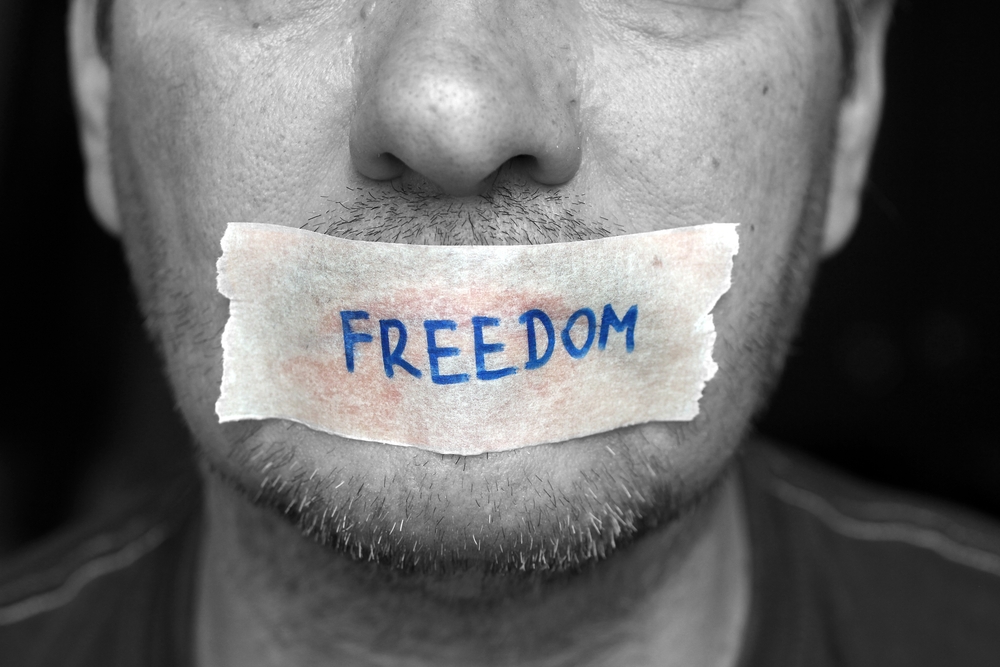Freedom of Speech should be an inalienable right, but social media makes things a little more complicated. Everyone is “free” to express themselves however they wish on their Facebook or Twitter feeds, but the line between expressing an opinion and offending someone of consequence is thin — and can have powerful implications for the person doing the offending. What does freedom of speech really mean in a world so constantly plugged in?
Professor Steven Salaita, a prominent scholar of American Indian and indigenous studies with six books and numerous articles to his credit, was offered a job at the University of Illinois. He packed up his life and his family and moved to a different state to take the job. There was a delay as he finished up some obligations at his previous school, and during that delay a newspaper printed some of his tweets regarding Israel’s attack on Gaza. These tweets were critical of Israel and they offended some people.
As more and more people (read: wealthy donors) complained to the University, the school finally made the decision not to hire Salaita. The fact that these tweets were not made during school hours or on school property was apparently immaterial. The professor had an excellent record of teaching and communicating with this students, and he was punished for speaking his mind on the internet, as most of us do so “freely.”
The fact is that freedom of speech in this world is only free up to a point. You can only speak your mind “so much” before it can get you into trouble. Now that we all jump on Facebook or Twitter to broadcast what we had for breakfast, we have to be constantly vigilant about how everything we say may offend someone and therefore jeopardize our own careers. Perhaps this is an inevitable consequence of being so connected, but is it right?
Freedom of speech is defined as “the political right to communicate one’s opinions and ideas using one’s body and property to anyone.” It’s a nice theory, but unfortunately the real story is very different. While it’s likely that people like Steven Salaita will have to keep watching what they tweet for a long time to come, it’s important that we work toward a world of freer expression. And those who offend people more powerful than rich university alumni need a safe platform to do so.
If you’re looking for a way to express yourself online without risking your livelihood, you might consider offshore web hosting in a country with the some of the world’s most progressive free speech laws. If you don’t want to identify yourself on your website, you don’t have to. All you need is an email address and an opinion.
For more information on freedom of speech please contact us.


Recent Comments